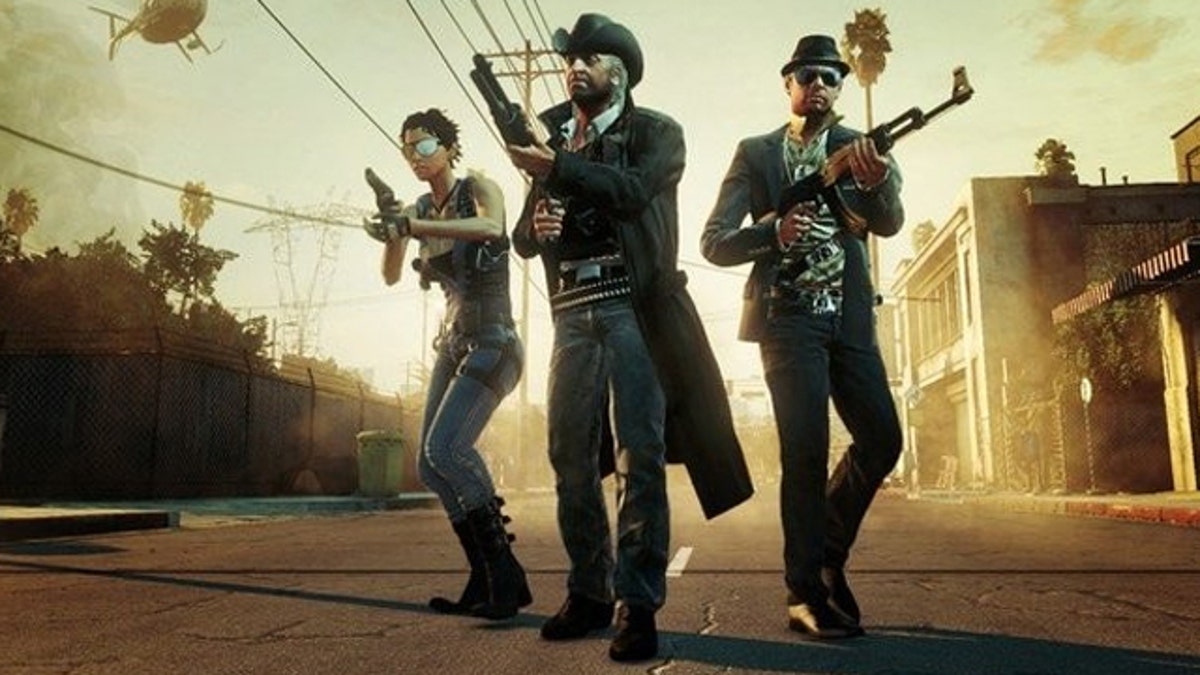
Welcome to the New Wild West.
That’s the tagline for Ubisoft’s "Call of Juarez: The Cartel," a new video game that is raising concerns over whether the story's plot exploits and trivializes the ongoing violence unfolding in the border states and cities of both the United States and Mexico.
The third chapter of the gun-slinging Western series takes on the border region's ongoing drug war violence in a high-stakes plot that takes players from Los Angeles, California to Ciudad Juárez, Mexico. Although game play details of the first-person shooter have not been released, its website promotes the game as “a bloody road trip from Los Angeles to Juárez, Mexico,” in which you can “take justice into your own hands.”
“Ignite an all out border war in this gritty First Person Shooter Epic,” reads the cover of EGM magazine’s March edition, which features an exclusive inside look into the game.
“I think this should be taken very seriously considering the large scale demonization of Mexico and the Mexican people,” said Dr. Kathleen Staudt, Professor of Political Science at the University of Texas at El Paso.
“People who don’t understand the border and don’t know the border are now going to view it in a caricature game,” said Dr. Staudt, researcher on topics including immigration, the border, and violence. “The whole picture of the border is one in which people are suffering tragedies but also it’s about the resilience of the people.”
In a statement to Fox News Latino, an Ubisoft spokesperson said the game is purely fictional and developed for entertainment purposes only: “While 'Call of Juarez: The Cartel' touches on subjects relevant to current events in Juarez it does so in a fictional manner that makes the gaming experience feel more like being immersed in an action movie than in a real life situation.”
This Ubisoft video game, while it is the latest example, is actually the company's second game that directly deals with Mexico and border violence. In 2007, Tom Clancy's Advanced Warfighter 2 centered around US special forces fighting in Mexico and El Paso.
More and more games are basing their plots on real-world conflict and cross-border violence.
Activision’s wildly successful "Call of Duty: Modern Warfare" and "Call of Duty: Black Ops" games broke world records in profits. "Black Ops" became the biggest launch in entertainment history last year, tallying $1 billion in its first six weeks on store shelves. These games used story lines based on today’s conflicts. "Black Ops" included missions in specific Latin American countries including the role-playing of an assassination attempt on Fidel Castro in Cuba.
THQ’s new game "Homefront," scheduled to be released in March, takes place in the year 2027, when after 15 years of economic meltdown and widespread global conflict, the once proud America has fallen and is occupied by the “savage, nuclear armed greater Korean Republic.”
"Homefront" has already caused problems in Japan, where the Computer Entertainment Rating Organization (“CERO”) forbids the portrayal of existing people and/or countries in video games. In order to comply, THQ has had to cut all mentions of Kim Jong-Il, including in opening cinematics. Instead of mentioning Kim by name, the game now references a “Northern Leader,” and all previous mentions of North Korea have been changed to “A Certain Country to the North.”
“It is one thing to demonize violence in your own country but once you start doing that across borders you can cause cultural misunderstandings and nationalist sympathies that can be harmful to everyone in the long term,” says Staudt.
Some game industry observers strongly disagree.
"As a general trend, by bringing it into modern day or real day conflicts you can get more publicity to the game and it makes them more relevant," says Sam Kennedy, Editorial Director for 1UP.com, a leading video game news and reviews website.
"It really comes down to how this game is handled. What you wouldn't want to see is a lot of negative stereotypes and exploitation of those stereotypes but I think they will be sensitive of that," he adds.
As for game fans, some of the postings and comments in the ramp-up to launch show both excitement and ambivalence.
Nickolas Pérez, 24, from Dallas, Texas says he is conflicted on whether or not to buy the game.
“If a game comes too close to an event that is sensitive to people, I wouldn't feel completely right to contribute something that causes others hurt. In this case, buying the game,” he wrote in an email.
But, Pérez added: “I also believe that it is important to detach yourself from games and realize it is a fictional depiction of possibly real events and is unintended to cause stress or grief.”
You can reach Bryan Llenas at Bryan.Llenas@foxnewslatino.com.
Follow us on twitter.com/foxnewslatino
Like us at facebook.com/foxnewslatino
